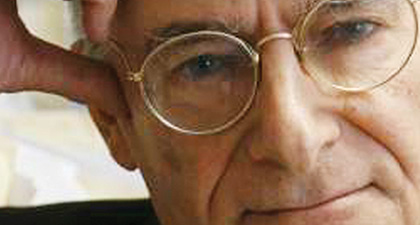Strictly speaking, I am not a survivor of the Holocaust, since all four of my grandparents came to Canada before World War I. Yet, in a very real sense, I and every Jewish person are survivors of the Holocaust. Six million Jews were killed. All Jews were targeted. It is only the fortunes of war that gave us an Allied, rather than an Axis victory in World War II. If the Axis powers had won, not I, not one Jewish person would be alive today.
I have escaped to tell. If we can give any meaning to the meaningless slaughter of so many millions of innocents, we must learn the lessons of the Holocaust. But these lessons will not descend from heaven. They ascend from hell, the inferno of total conflagration, from which the remnants of the Jewish community escaped. In his novel Twilight, Elie Wiesel writes: “It may not be in man’s power to erase society’s evil, but he must become its conscience.”
To say “Never Again” is easy. To make it happen is not so easy. The reality is that, since World War II, genocide has happened again and again; not to Jews, but to Cambodians, to Hutus, to Tutsis, to Bosnians, to Somalis, and one could go on.
The anti-Semitism that led to the Holocaust took its most vicious form in Europe. It had its counterparts in Canada. In Winnipeg, during my early childhood years, there was a quota on Jews admitted to medical school at the University of Manitoba. It was impossible for Jews to buy property in the Winnipeg neighbourhood of Tuxedo. Jews could not join a fashionable dining club, the Manitoba Club, or the St. Charles Golf and Country Club. Victoria Beach was off limit to Jews. None of the large Winnipeg law firms had Jewish partners, and none had Jewish employees.
* * *
In one sense, my involvement in human rights was happenstance. I have been involved in human rights work in four different ways: through working for refugees, attempting to bring war criminals to justice, promoting the banning of hate speech and advocating for victims of international human rights violations. My involvement in each began more by circumstance than by design.
From my preteen years, I knew I wanted to do something in response to the Holocaust. Over time, it became clear to me what that something would be – attempting to learn the lessons of the Holocaust and act on them.
The lessons I have drawn from the Holocaust are that mass murderers must be brought to justice; that refugees must be protected; that hate speech should be banned; and that we must never accept in silence gross violations of human rights. I have engaged in human rights work to act on these lessons, to join the human rights struggle on four connected fronts. In fighting on these four fronts, I have had to combat four different enemies that prowl throughout the human rights battlefield.
These four horsemen of our very own human-made apocalypse are indifference, absolutism, hypocrisy and a sense of helplessness. Indifference has been the main foe of bringing mass-murderers in Canada to justice. When people are victims or potential victims of human rights violations, it is easy for them to become concerned. Where the victims are others, many people, regrettably, just do nothing.
Hypocrisy, acceptance of human rights values in principle, and violation in practice, are well illustrated in the refugee field. States accept refugee protection in principle. Yet, a variety of techniques, including a narrow application of the refugee definition, a denial of fairness in determination procedures, harsh treatment of those awaiting decisions, exaggerated skepticism, and interdiction all mean that a commitment to refugee protection, in principle, has often been coupled with denial of refugee protection in practice.
My struggles to foster effective hate speech laws have led me to battle against absolutism, the belief that the human right to freedom of expression trumps all others. There is no more important lesson to be learned from the Holocaust than the need to ban hate speech, because the banning of hate speech, if effective, may prevent atrocities from occurring.
My fourth human rights nemesis is a sense of helplessness, the feeling that human rights violations are so massive, that nothing can be done about them. Human rights belong to individuals. Unless individuals promote respect for rights, these rights are bound to wither. Embedded within the concept of human rights is a concept of a common humanity we all share, the notion that the human species is one. By asserting human rights, we promote that common humanity.
Rabbi Hillel, two millennia ago, asked three questions. The first two are: “If I am not for myself, who will be for me? If I am only for myself, what am I?” In my human rights work, I have tried to keep those questions in mind.
I would rephrase what Rabbi Hillel said this way: if we do not work for the human rights of our own community, who else will do it? Yet, if we do only that, if we leave to others the struggle for respect for human rights of those not members of our own community, what are we?
As for the third question Rabbi Hillel asked, it needs no rephrasing in this context. We can and must ask, when it comes to respect for human rights, “If not now, when?”
David Matas is an international human rights lawyer based in Winnipeg. He is senior honorary counsel to B’nai Brith Canada.
Excerpted from Why Did You Do That? The Autobiography of a Human Rights Advocate by David Matas. Published by Seraphim Editions 2015. ©David Matas
